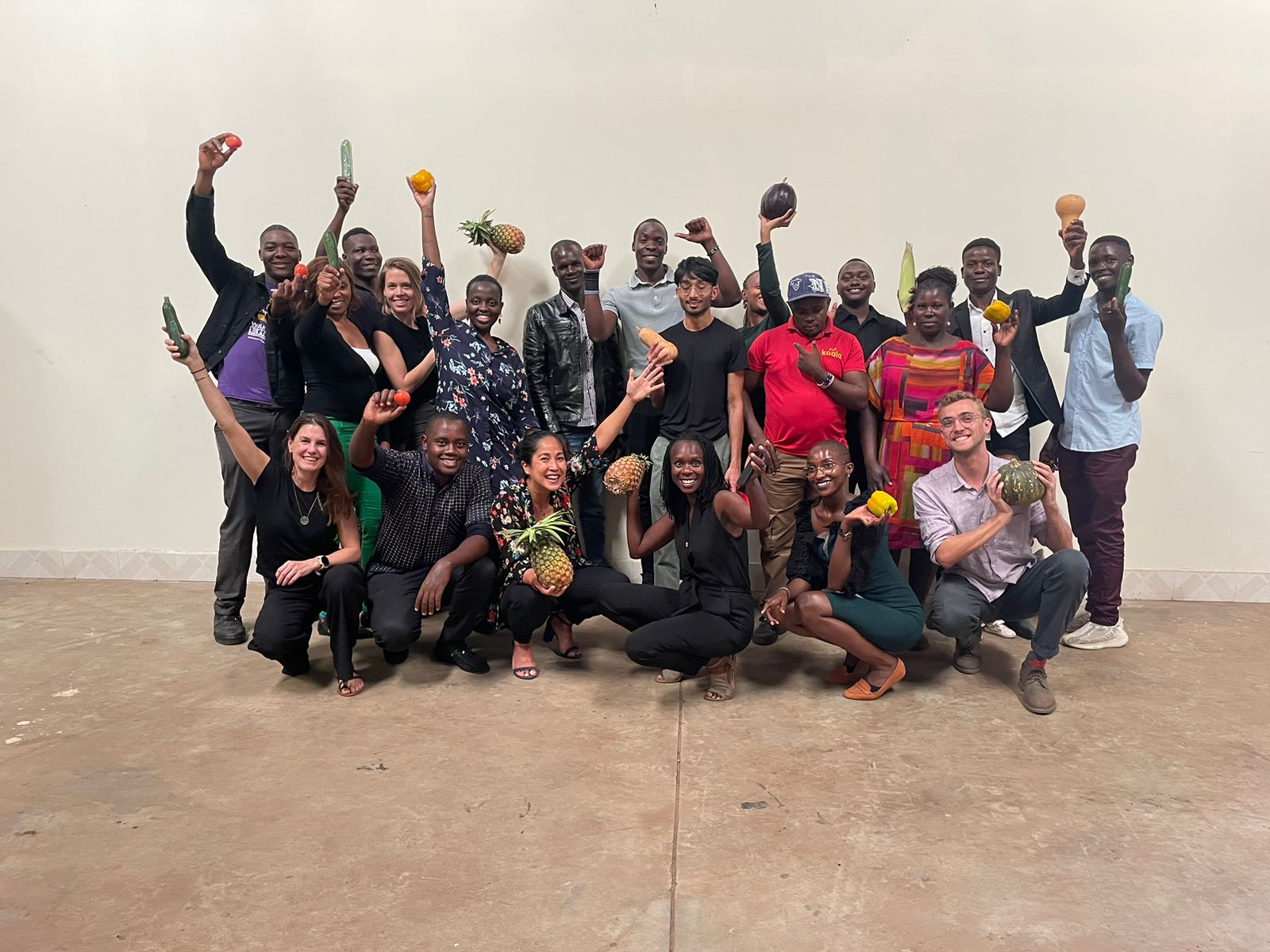Greetings, Agents of Impact!
Featured: Impact Voices
An ‘impact-first’ approach to climate justice in rural communities. Capital is flowing for commercial climate financing, from cleantech to renewables. For climate justice, not so much. The world’s poorest and most marginalized communities will bear a disproportionate burden from the climate crisis. Businesses and non-governmental organizations with proven solutions around land stewardship, agricultural adaptation and reliable electricity for vulnerable communities struggle to find growth capital that is suited to their work. Such investments require an “impact-first” mix of grant subsidies and patient, low cost capital, say Vince Knowles and Greg Neichin of Ceniarth, a family office with roughly $400 million in assets. Ceniarth has direct investments in 27 enterprises and about $28 million in capital deployed in sub-Saharan Africa, as well as fund investments that address climate justice. “We fundamentally believe that climate solutions should proactively benefit the people most directly affected by this harsh reality,” Knowles and Neichin write in a guest post on ImpactAlpha. “Farmers can only think long term if they have a secure claim to their land and access to finance that allows long-term investment.”
Risk-averse small farmers and rural communities need holistic solutions. Where possible, Ceniarth extends long-term capital that allows its partners to offer the same to farmers, and looks for solutions that support smallholder land rights. In Ceniarth’s portfolio: distributed micro-forestry business Komanza, smallholder services bundler One Acre Fund, agricultural climate insurer Blue Orchard InsuResilience Fund, moringa brand Kuli Kuli Foods, solar financier SunFunder and water solution financier WaterEquity. “We look for partners that provide a full package of support to farmers, including financing, training, access to inputs, access to markets, and insurance,” say Knowles and Neichin. Ceniarth’s challenge to climate investors: Expand your lens. “We must tackle the transition of the world’s developed energy infrastructure away from carbon-intensive fossil fuels while addressing the climate justice and agricultural implications for the world’s poor,” the authors say. “This is not an either/or proposition.”
Keep reading, “An ‘impact-first’ approach to investing for climate justice in rural communities,” by Vince Knowles and Greg Neichin on ImpactAlpha.
- Join the conversation. Cenaith is hosting “Climate Justice: What Can I Do Now?” with WaterEquity’s Alix Lebec, Komaza’s Tevis Howard, Lisa Curtis of Kuli Kuli Foods, Jenya Shandia of One Acre Fund and Maria Teresa Zappia of Blue Orchard Climate Resilience, Thursday, Dec. 3. Register here.
- Impact-first investor. Ceniarth’s Diane Isenberg challenges other family offices in an interview on ImpactAlpha’s Agents of Impact podcast. “I do feel like the high-net-worths haven’t really stepped up,” she says, laying down a “1/10th Challenge” for wealthy families.
Dealflow: Follow the Money
Bain Capital raises $800 million for second Double Impact fund. The Boston-based private equity firm raised more than double the amount of its first impact fund (see, “What we know about Bain Capital’s $390 million Double Impact Fund”). International investors committed 25% of the fund, while Bain’s own employees committed $75 million, according to the Wall Street Journal. Bain’s Todd Cook acknowledged to the WSJ that pandemic-related shutdowns slowed fundraising. The fund’s thesis will mirror that of the first Double Impact fund, seeking to scale companies advancing environmental sustainability, health and wellness, and workforce development and education.
- Impact portfolio. Double Impact Fund I has made a dozen investments including in edtech company PresenceLearning and health services firm Broadstep Behavioral Health. Another portfolio company, Sustainable Restaurant Group, filed for bankruptcy in May amid coronavirus business disruptions and was later acquired out of bankruptcy by Sortis Holdings (see, “Two steps forward, one back, for Bain Capital’s Double Impact fund”). Bain exited Impact Fitness, one of its earliest health and wellness investments, to Morgan Stanley Capital Partners last year.
- Share this post.
Sustainability SPACs. Special purpose acquisition companies, or SPACs, continue to raise capital, even as concerns mount over high fees and hidden provisions. U.K. electric van maker Arrival will go public via a merger with CIIG Merger Corp., a special purpose vehicle company of U.S. businessman Peter Cuneo… National Order Acquisition Corp., a sustainability-focused SPAC formed earlier this year, raised $230 million to invest in plant-based and alternative protein technology companies… Lighting EMotors, which is electrifying commercial vehicle fleets, is reportedly planning to go public via GigCapital3 Inc… “Healthy living” SPAC Better World Acquisition Corp. raised $126 million, which was above the $110 million it was targeting.
Citi Foundation supports 30 community development financial institutions. The $15 million effort will provide $500,000 in unrestricted funding to local CDFIs, including LiftFund and PeopleFund in Texas, Four Bands Community Fund and Lakota Funds in South Dakota, Chicanos Por La Causa and Raza Development Fund in Arizona, and more in California, Delaware, Florida, Illinois, Maryland, Missouri, New York and Washington, D.C. (see, “Innovative CDFIs scale up to help underserved communities move from relief to recovery“).
Aclima snags $40 million to expand air quality mapping. Roughly half of Americans live where the air is unhealthy to breathe. “The same emissions that are changing our climate are also polluting the air we breathe and creating a public health epidemic,” says Aclima’s Davida Herzl. The San Francisco-based company’s network of sensors measures and maps air quality (see, “Aclima raises $24 million to map air quality, globally”). Microsoft’s billion-dollar Climate Innovation Fund and Rethink Capital participated in the Series B round, led by Clearvision Ventures. Share this post.
Clean transport startup Ecolution kWh raises $3 million. The Naples, Fla.-based startup stores and dispatches kinetic energy from vehicle motion, reducing emissions of trucks and trains. The investment is the first from Brown Venture Group, formed in 2018 to fund startups led by Black, Latino and Native founders.
Signals: Ahead of the Curve
Grassroots groups are mobilizing communities to take racial justice from protest to progress. With $30 million in grants to 60 local and national racial justice organizations, Kresge Foundation is seeking to harness the power of this year’s protests for legal, policy and economic change. “It’s not for us to invent, but to encourage greater coherence and integration so it adds up to more than a year of protest in the streets,” Kresge’s Rip Rapson told ImpactAlpha. Rapson ticked off the need for training, leadership development, communications savvy, research, policy and organizing. “All of the traditions of community mobilizing are moving into a different phase. The superstructure of public policy has to take account of these energies.”
- Local organizing. The foundation, based in Troy, Mich., 20 miles from Detroit, allocated $23 million to local organizations, primarily in Detroit, Memphis, New Orleans and Fresno, Calif. In Detroit, the New Economy Initiative is expanding its work to micro-businesses. In New Orleans, Good Work Network will strengthen minority-owned firms and connect them with anchor institutions to drive revenues. In Fresno, the Council on American Islamic Relations, Jakara Movement and Hmong Innovating Politics will help the area’s diverse populations advocate for housing policy and policing reform.
- National networks. Kresge granted another $7 million to national organizations, including Movement for Black Lives and the Black-Led Movement Fund, which in turn provide financing and support to smaller and local racial justice organizations. The latter organization, for example, led Kresge to fund the Black Trans Fund, which the foundation called “the first such grant Kresge has made in its nearly 100-year history.”
- Health, education and human rights. Separately, the William and Flora Hewlett Foundation made $15 million in grants to racial justice nonprofits, including Common Future (read about Agent of Impact Rodney Foxworth), Data 4 Black Lives and Souls Grown Deep (see, “Souls Grown Deep Foundation to invest $1 million in artists’ hometowns in the US south”).
- Share this post.
Agents of Impact: Follow the Talent
Lara Metcalf, ex- of Social Entrepreneurs Fund, joins The Engine as chief financial officer and chief operating officer… Phil Kirshman, ex- of Cornerstone Capital Group, joins Syntrinsic as chief investment officer… Paulina Stannard, ex- of Family Office Exchange, joins Align Impact as director of client service… Jennifer Nuzzo of Johns Hopkins Bloomberg School of Public Health and AIRnyc’s Shoshanah Brown join the advisory board of Stop the Spread… Eat Beyond appoints Don Robinson, former CEO of Mars Canada, to chairman of the board… Unreasonable Group is looking for a coordinator of initiatives, community and investments in New York… Align Impact seeks a client service associate in New York or Santa Monica, Calif.
Thank you for reading.
– Nov. 23, 2020











